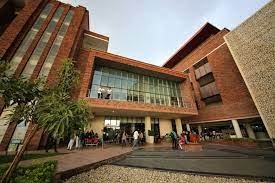
A second Economics professor has stepped down from Ashoka University, citing an “environment of fear”, shortly after his colleague’s resignation over a controversial research paper sparked a political storm. Pulapre Balakrishnan, known for his work on the Indian economy’s inflationary process and economic growth, resigned as professors of the Economics Department protested against Sabyasachi Das’ departure.
Pulapre Balakrishnan, an accomplished academic with research spanning the dynamics of inflation and economic growth in India, resigned from Ashoka University’s Economics Department. The resignation came in the wake of the exit of fellow professor Sabyasachi Das, who left amidst a heated controversy surrounding his research paper highlighting potential evidence of election manipulation.
Sabyasachi Das’ research paper titled ‘Democratic Backsliding in the World’s Largest Democracy’ stirred considerable turmoil. The paper’s findings indicated that the Bharatiya Janata Party (BJP) secured disproportionate wins in closely contested constituencies, primarily concentrated in states ruled by the party during the elections. This assertion ignited a political conflict between the Congress and the BJP, drawing Ashoka University into the fray.
The Economics professors of Ashoka University expressed their objections to Sabyasachi Das’ departure and voiced concerns over academic freedom. In an open letter to the university, they condemned what they perceived as institutional harassment and interference by the governing body. The professors criticized the university’s involvement in evaluating faculty research and demanded Das’ unconditional return along with a commitment to refrain from evaluating research through any committee or structure influenced by the governing body.
Ashoka University clarified that Sabyasachi Das’ research paper had not yet undergone a comprehensive review process and had not been published in an academic journal. The university emphasized that individual social media activity or activism by its faculty, students, or staff does not necessarily reflect the university’s official stance.
Sources By Agencies


